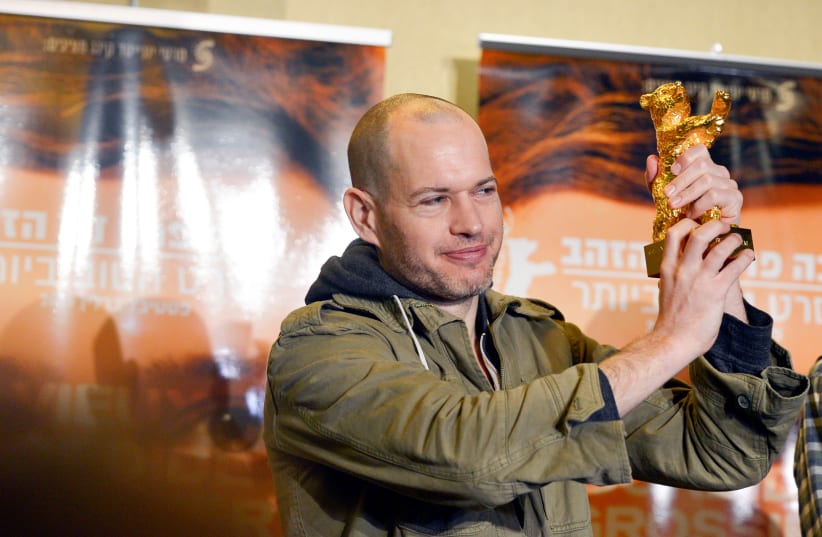He was joined at the press conference by the film’s stars, Avshalom Pollak and Nur Fibak, who accompanied the film to Cannes.
The movie, which is about a tormented filmmaker, Yud (Pollak), who is coping with the fact that his mother is dying while he is brought to speak at an event in the Arava, shared the Jury Prize, in a rare tie, with Apichatpong Weerasethakul’s Memoria.
It is Lapid’s fourth feature film and his previous film, Synonyms, won the Golden Bear, the top prize, at the Berlin International Film Festival in 2019. In the Ahed’s Knee, the director character is making a film about Ahed Tamimi, the Palestinian teenager who was jailed for striking a soldier, and holds auditions for her part, as well as for someone to play formerTransportation Minister Betzalel Smotrich, who tweeted that, “In my opinion, she deserved a bullet, at the very least to the kneecap.”
The movie also references — although not by name — a Culture Minister, clearly based on former Culture Minister Miri Regev, who often antagonized the arts community in Israel.
Asked why he made such clear references to real political figures in the movie, Lapid said, “I wanted to take reality and introduce it into the movie. . . . But it’s not the real person, Ahed Tamimi in the movie, she is a symbol of something in Yud’s world, the movie doesn’t talk about the real, concrete Ahed Tamimi.”
Asked what he hoped Smotrich would get out of the movie, he said, “I don’t really want to talk about Smotrich.”
“It was a topic of conversation at the festival, it was an atomic bomb, a slap in the face, in a good way . . . With the unprecedented two years of films, 24 films battling each other for all the prizes, will the bomb effect hold on till the end of the festival . . .opposite all these great artists and their films and we are all so happy that it did, that it won this super important prize.”
He acknowledged that he had received government support for the movie, but only after the movie was complete. “I didn’t give the script to the [film] fund because in the atmosphere then I felt if it got into the wrong hands, it would hurt the film’s chances of getting made. I can’t say in retrospect what would have happened if I had submitted it. . . When it was finished we submitted it and got a sum of NIS 100,000 out of a budget of NIS five million.”
He said he did not see it as hypocritical to accept government funding for a movie portraying the government as censoring art.
“Art must be free, when I get funding from Israel I am filled with responsibility toward the government that has funded and supported me and I have to say what I truly believe.” He said he felt, “Self censorship is the most dangerous thing.”
Talking about his sadness that his mother, film editor Era Lapid, who worked on his earlier movies and who passed away three years ago, did not see the movie, he noted that the filming was filled with “sorrow and grief.”
“She would tell me all the kinds of things that I didn’t imagine and didn’t expect,” he said. “I hope she would have liked it.”
